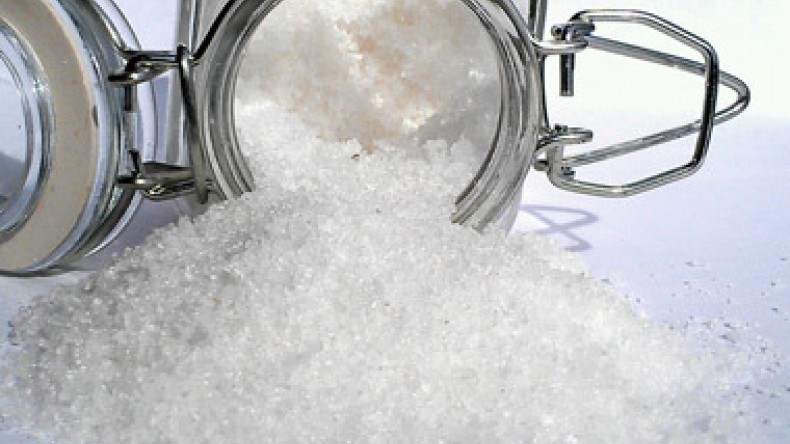
Sugar is a greater enemy to the body than salt
Sugars added to processed foods and fizzy drinks poses a greater threat to the heart than salt, it has been claimed.
Doctors have called for dietary guidelines to focus more on the dangers of sugar, and less on salt, the Daily Mail reports.
A new study warns added sugars - rather than than added salt - are likely to have a greater role in raising blood pressure, as well as triggering heart disease and stroke.
In the fight to curb the prevalence of heart disease, the experts warn the dangers, particularly linked to fructose, must be highlighted.
Heart disease is the number one cause of premature death in the developed world.
And high blood pressure is its most important risk factor, accounting for almost 350,000 deaths in the US in 2009 and costing more than $50 billion each year.
Dietary advice to help lower high blood pressure has historically focused on cutting salt intake.
But the potential benefits of this approach are 'debatable', the authors of the new study said.
They said the average reduction in blood pressure as a result of restricting salt intake, tends to be relatively small.
Some evidence suggests that 3 to 6g of salt each day may be optimal for health - in fact, anything less than 6g is actually harmful.
Most salt in a person's diet comes from processed foods, which also happen to be a rich source of added sugars, the scientists argue.
'Sugar may be much more meaningfully related to blood pressure than sodium, as suggested by a greater magnitude of effect with dietary manipulation,' the study found.
'Compelling evidence from basic science, population studies, and clinical trials implicates sugars, and particularly the monosaccharide fructose, as playing a major role in the development of hypertension (high blood pressure).
'Moreover, evidence suggests that sugars in general, and fructose in particular, may contribute to overall cardiovascular risk through a variety of mechanisms.'
The researchers point the finger at high fructose corn syrup, which is the most frequently used sweetener in processed foods, particularly fruit-flavoured and fizzy drinks.
The study states: 'Worldwide, sugar sweetened beverage consumption has been implicated in 180,000 deaths a year.
Around 300 years ago, people only consumed a few pounds of sugar a year, they add, whereas current estimates suggest that average consumption in the U.S. is between 77 and 152lbs a year - equivalent to 24 to 47 teaspoons a day.
The evidence suggests that people whose dietary intake of added sugars adds up to at least a quarter of their total daily calories have almost triple the cardiovascular disease risk of those who consume less than 10 per cent.
And a daily intake of more than 74g of fructose is associated with a 30 per cent greater risk of blood pressure above 140/90 mm Hg and a 77 per cent increased risk of blood pressure above 160/100 mm Hg.
A high fructose diet has also been linked to an unfavourable blood fat profile, higher fasting blood insulin levels, and a doubling in the risk of metabolic syndrome.
Some dietary guidelines do include recommendations about daily intake of added sugars, but are not stringent enough, nor do they make specific recommendations about fructose, say the authors. And it's high time they did.
Newsfeed
Videos






























